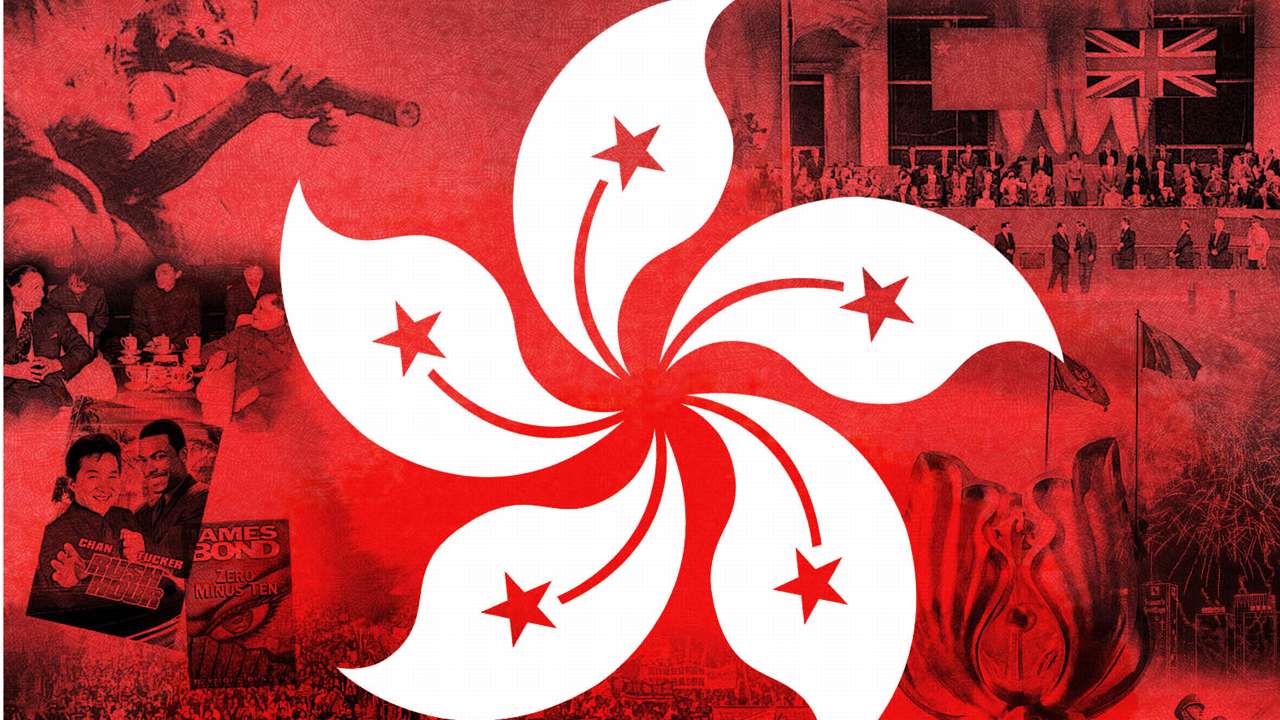On November 13, 2018, the Synergy: Journal of Contemporary Asian Studies hosted a panel discussion entitled “China ‘Going Global’: New Configuration of Chinese Overseas Investment,” held at the Munk School of Global Affairs and Public Policy. The Synergy Journal organized this event alongside the Munk School’s Asian Institute and the Contemporary Asian Studies Student Union (CASSU) as co-sponsors. Professor Howard Lin from Ryerson University’s Ted Rogers School of Management and Professor Lynette Ong from the University of Toronto’s Department of Political Science joined us to present at this event. Both panelists shared their insights and critical explorations of the topic of China’s increasing economic presence around the world, namely through increased foreign direct investment (FDI).
It has been more than two decades since the People’s Republic of China initiated its “Going Global” strategy, which encourages domestic firms to increase their investment in foreign markets. Since the implementation of this strategy, Chinese FDI has steadily increased in scale. In more recent years, this trend has also been complemented by the ambitious “One Belt, One Road” Initiative, otherwise known as the Belt and Road Initiative (BRI). BRI calls for extensive investment in and development of improved trade routes between China and other economies in Asia, the Middle East, and Europe.
As the first panelist Professor Lin notes, the Belt and Road Initiative was initially quite passive in nature, intending to serve as a means of counteracting American economic containment of China. However, the BRI’s ambitions gradually evolved into a more proactive, infrastructure-driven development project that deliberately focuses on improving connectivity and collaboration between China and other countries involved in this network.
Professor Lin proceeded to explain China’s overall approach towards foreign investment and economic aid. He noted that China practices a policy of “non-interference,” in which China’s directs investment in and economic aid to other countries does not come with political conditions. In contrast, western models of assistance often demand or encourage the recipient country to alter its domestic institutions or political structures. At a first glance, China’s approach might seem more neutral, and thus, more likely to be widely accepted by the international community. However, Professor Lin noted that the BRI has caused considerable political concern and controversy in the West, which views China’s blueprint as a challenge to the Western economic approach to investment and aid, as embodied in the so-called Washington Consensus.
The Washington Consensus is based on neoliberal ideals that have historically underpinned the ideologies of major international financial institutions (IFIs) such as the International Monetary Fund and the World Bank. Under this consensus, Western-led IFIs provide investment and/or aid to nations with the condition that they pursue privatization, deregulation, and a series of other liberalizing structural reforms. Consequently, Western nations now fear that developing nations might increasingly reject the Washington approach, in favour of China’s “hands-off” approach to economic aid and investment. If this is to occur, China’s already substantial economic and political influence will only grow to the perceived detriment of Western nations.
Beyond political concerns, Professor Lin further noted that BRI’s economic implications have also raised a few eyebrows. Specifically, if Chinese firms controlled large quantities of valuable commodities around the world, this could potentially lead to unfair competition and the distortion of global markets.
Finally, as a part of his concluding remarks, Professor Lin stated that increasing outward investment represents a new phase of China’s growing influence and integration in the international system. However, Professor Lin was also careful to clarify that often, small private companies are the major actors behind China’s foreign investment footprint, rather than the government per se. Smaller Chinese corporations have demonstrated a notable track record in their ability to integrate into supply chains and business networks abroad.
During the second half of the panel, Professor Ong began her presentation by challenging the claim amongst certain scholars and political commentators that the Chinese presence in Africa is a new form of colonialism. She offered her perspective that while this claim may have been true 10-20 years ago, when most investment by China was state-driven, Chinese investment in Africa today is increasingly market-driven. In fact, Professor Ong noted that according to McKinsey, 90% of the 10,000 Chinese firms currently operating in Africa are privately-owned. The last ten years have also witnessed growing Chinese investment in the African manufacturing sector. Africa is a growing consumer market, and the rising costs of doing business in China and government incentives for foreign investment have made it increasingly sensible from an economic perspective for Chinese firms to relocate. Host countries also get an attractive deal – China builds the infrastructure, and Chinese firms invest in manufacturing, helping to develop a local manufacturing sector.
Professor Ong notes, before 2010, investment was overwhelmingly resource driven. Chinese companies invested mostly in extractive industries, and predominantly employed imported Chinese workers. However, today, Chinese companies are investing in a more diversified range of sectors, increasingly hiring and training local workers. Chinese companies, she contends, have built trust with their host countries, and hence are more willing to work with local partners and workers.
Additionally, Chinese investment usually does not carry the conditionality of loans usually present in deals offered by Western countries and institutions. Such conditions can range from human rights conditions and anti-corruption to environmental standards. In contrast, Chinese investment is more opaque, thus holding the tendency to lack transparency and fuel local corruption. Nonetheless, Professor Ong contends that it is the nature of host country regimes that determines the influence of BRI investments. In less autocratic, “competitively authoritarian” countries, civil society can contest the implementation of Chinese investments. In more autocratic societies, there is little accountability for Chinese operations. For instance, in May 2018, when a new political party rose to power in Malaysia, the newly inaugurated Prime Minister cancelled two Chinese projects approved by the previous Prime Minister, on the basis that the infrastructure projects were mired in corruption scandals. Civil society uproar was key to this process. Western countries and donors, Professor Ong contends, could make a constructive contribution by helping developing countries build governance capacity and the robustness of local civil society, placing BRI’s intended beneficiaries in a better position to bargain with China.
In the subsequent Q&A session, the two speakers took questions from audience members. One audience member, noting the recent case of Sri Lanka, raised the issue of how Chinese loans were converted into equity. For example, countries like Sri Lanka who are unable to repay their loans had to hand over operational control of a port to China for 99 years. In response, Professor Ong argued that China did not benefit from such an outcome, especially because of the negative press coverage that it received. Professor Lin further suggested that developing countries should learn from China’s history in terms of how to uphold sovereignty while benefiting from foreign investment. Lin noted that China itself benefited from technology transfer and investment, while retaining and building state sovereignty. Another audience member noted that China is the second largest destination for African students, and that Afrobarometer statistics indicate a very positive view of China in Africa. Furthermore, he commented on proliferating partnerships between China and countries in other parts of the world, including Spain and Japan, noting the collaboration between Chinese and Spanish companies on the Inga Dam in the Democratic Republic of the Congo as an example.
Another audience member argued that Chinese construction is a win-win for China and the host countries of Chinese investment. In response, Professor Lin contended that China’s risky, low-return projects in developing countries will benefit these countries in the long-run, regardless of the political purpose. Professor Ong was less optimistic, and argued that especially in countries such as Malaysia and Indonesia, where Chinese communities still constitute a minority, Chinese investment is associated with an ethnic dimension. This undertone is seen to increase China’s footprint in ethnic heartlands and fuel corruption.
A final question from the audience asked about the prospects for industrial upgrading in China. Professor Ong noted that Huawei is one of two companies capable of underwriting 5G infrastructure. Simultaneously, due to an incentive structure that favors the former over the latter, China excels more in commercial applications than in basic research. Hence, for basic infrastructure, China continues to lag behind the United States. Professor Lin added that only the U.S. and China can sustain real technological breakthroughs, but the Chinese economy will be set back by many years in the context of current tensions with the US.
The Synergy Journal is immensely grateful for the success of this panel event. The editorial committee would like to extend its heartfelt thanks to the Asian Institute and the Dr. David Chu Program of Asia-Pacific Studies for its ongoing and generous support, and to the two panelists, Professor Ong and Professor Lin, for taking the time to share their insights with us.
Daniela Zaks and Feaven Abidta are the Lead Editors of the East Asia Section, Synergy Journal.








